Publications
Articles, publications, books, tools and multimedia features from the U.S. Institute of Peace provide the latest news, analysis, research findings, practitioner guides and reports, all related to the conflict zones and issues that are at the center of the Institute’s work to prevent and reduce violent conflict.
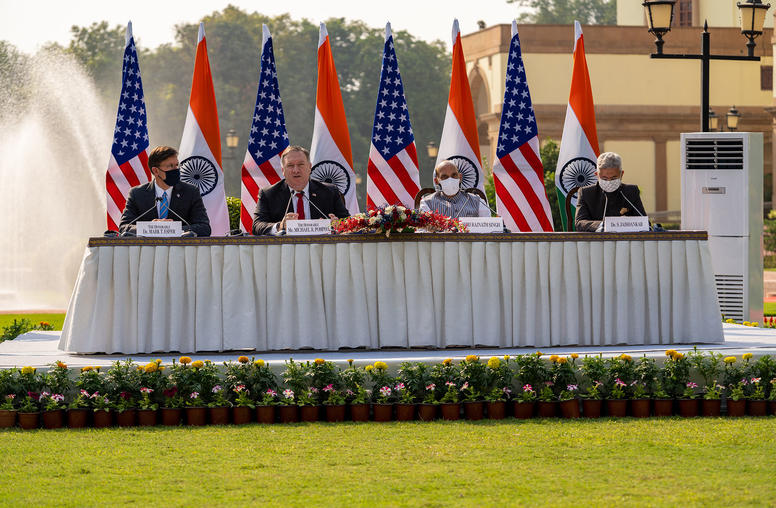
Spurred by China Rivalry, U.S., India Deepen Strategic Ties
The United States and India inked on October 27 a key agreement that will help New Delhi get real-time access to American geospatial intelligence. The agreement, known as the Basic Exchange and Cooperation Agreement (BECA), was a result of the 2+2 ministerial dialogue between U.S. and Indian defense and foreign affairs chiefs, following a trend in recent years of deepening military cooperation geared toward pushing back on China’s increasingly assertive policies in the region. This comes after a spate of skirmishes this year on the Line of Actual Control (LAC), a Sino-Indian disputed border region. USIP’s Vikram Singh looks at India’s evolving defense posture, deepening U.S.-Indian ties, and how it relates to India’s rocky relationships with China and Pakistan.
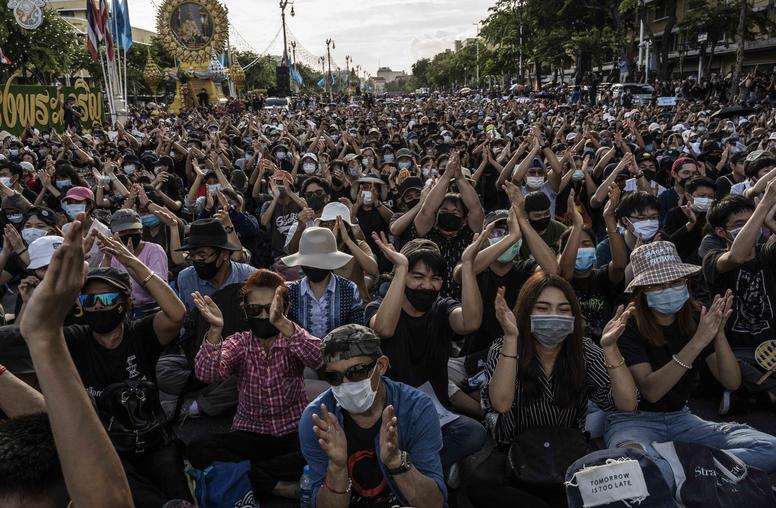
Addressing Fragility in a Global Pandemic: Elements of a Successful U.S. Strategy
The Global Fragility Act (GFA), passed by Congress and signed into law in 2019, requires the State Department, USAID, and other agencies to put in place for the first time a comprehensive strategy to address state fragility, violent conflict, and extremism, relying on best practices that are key to more effective and integrated U.S. policy. This report focuses on six key themes in the legislation, drawing on the expertise of leading peacebuilding and development experts to help generate practical solutions for advancing the GFA.
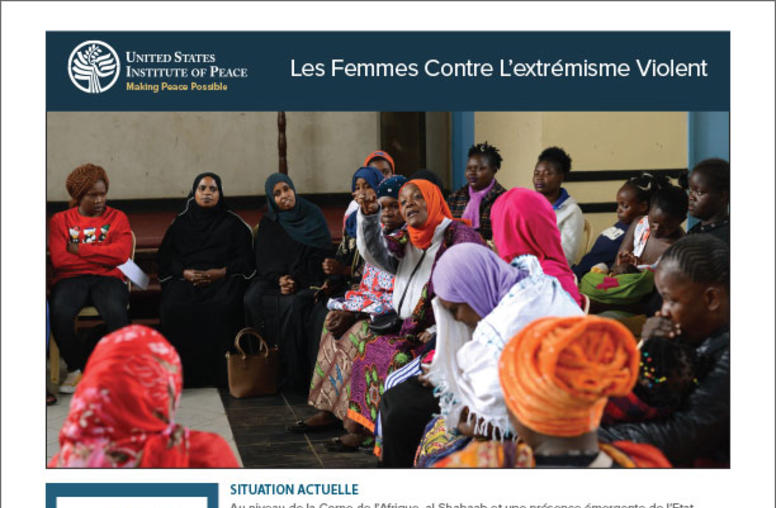
Women Preventing Extremist Violence (French)
Au niveau de la Corne de l’Afrique, al-Shabaab et une présence émergente de l’Etat Islamique ISIS ainsi que plusieurs autres groupes extrémistes sont toujours en place en Somalie, avec des recruteurs et des réseaux de facilitation s’étendant au-delà des frontières nationales et à travers la région. Au Sahel, d’innombrables communautés soufrent également de la violence extrémiste et terroriste perpétrée par différent acteurs dont certains appartenant à l’Etat islamique, d’autres étant affiliés Al-Qaïda et le reste tiré des mouvements dirigés localement.

The Unfolding Conflict in Ethiopia
Susan Stigant, director of Africa Programs at the U.S. Institute of Peace, testified on December 3, 2020 at the House Foreign Affairs Subcommittee on Africa, Global Health, Global Human Rights and International Organization's hearing on “The Unfolding Conflict in Ethiopia.” Her expert testimony as prepared is presented below.

Scott Smith on U.S. Troop Withdrawal from Afghanistan
With news of a breakthrough in Afghan peace talks, USIP’s Scott Smith warns that future troop withdrawal should “switch from a time-based deadline approach to a conditions-based approach” because if the Taliban believe withdrawal is inevitable, “they have no incentive to compromise.”
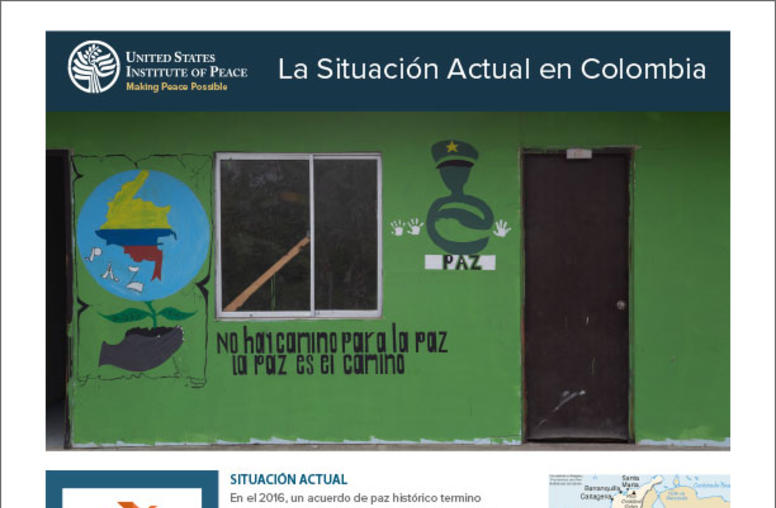
The Current Situation in Colombia (Spanish)
En el 2016, un acuerdo de paz histórico termino el conflicto armado de 50 años entre el Gobierno Colombiano y las Fuerzas Armadas Revolucionarias de Colombia (FARC). Pero implementar el acuerdo – que significa cementar lo acordado en la legislación nacional y asegurarse que sus provisiones lleguen a todas las partes del país de forma equitativa – sigue siendo difícil.
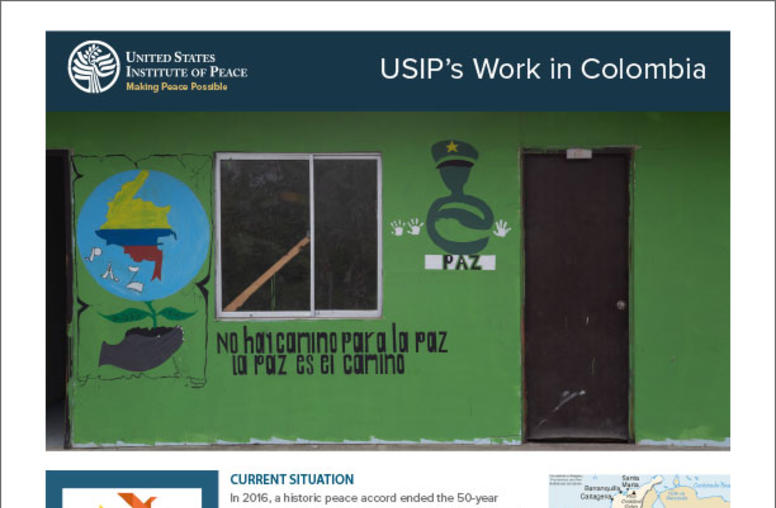
The Current Situation in Colombia
In 2016, a historic peace accord ended the 50-year armed conflict between the Colombian government and the Revolutionary Armed Forces of Colombia (FARC). But implementing the accord—which means cementing the agreement into national legislation and ensuring its provisions reach all corners of the country equitably—remains difficult.
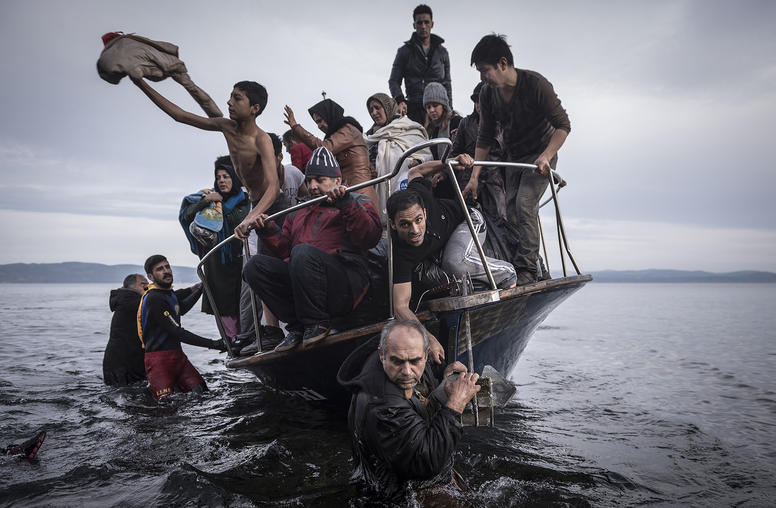
A Rapidly Changing World Requires Renewed International Cooperation
Emerging from the economic havoc of the Great Depression and the violence of World War II, the United States found itself at a hinge of history moment. American leaders like President Harry Truman and Secretary of State Dean Acheson believed that the United States should not only change the way it engaged with the world but assert itself to shape and lead it into a new era of international cooperation. Today, amid a global pandemic, the world faces a similar moment, with massive technological, demographic, environmental, and geopolitical shifts redefining the global order, said former Secretary of State George Shultz. “They [American leaders after World War II] said what we could say now … we are part of this world, whether we like it or not. And they set out to try to make something different.”
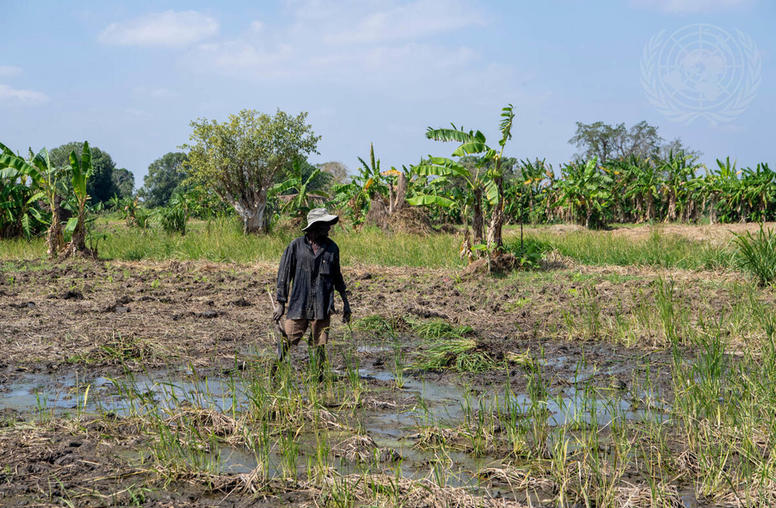
Mozambique’s Crisis Requires a New Playbook to Fight Extremism
Over the past three years, a local Islamist insurgency in the northern Mozambican province of Cabo Delgado has grown in strength and viciousness, developing ties with international terrorist groups and threatening one of the world’s largest natural gas projects. The insurgency is turning Cabo Delgado into a killing field.
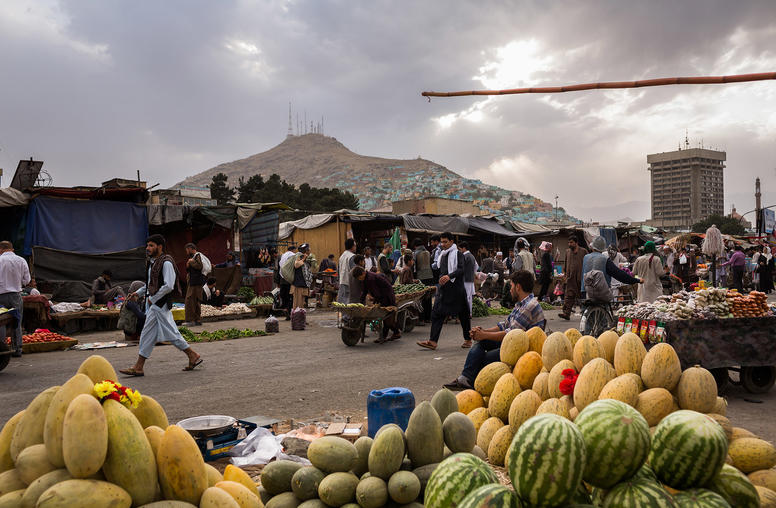
Afghanistan Aid Conference Yields Mixed Results
The quadrennial international donor conference for Afghanistan, held virtually late last month from Geneva, was largely shaped by the pitfalls and roadblocks forecast months ago when the event was publicly announced. Delays in the peace process, worsening violence, and unveiling of plans for further U.S. troop reductions left the meeting’s potential unmet. Yet amid the unsatisfying results, some hopeful rays broke through. In particular, the size and duration of aid pledges provided at least something to build on.